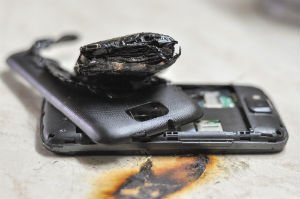 Defective product lawsuits are governed by Indiana Code § 34-20-1-1, also known as the Indiana Product Liability Act.
Defective product lawsuits are governed by Indiana Code § 34-20-1-1, also known as the Indiana Product Liability Act.
If you were injured or lost a loved because of a dangerous product and you want to file a defective product lawsuit, there are several things you need to know about this statute.
The Indiana Product Liability Act applies to claims against manufacturers and sellers brought by users or consumers for physical harm caused by a product.
Definition of a Defective Product
Indiana Code § 34-20-4-1 defines a defective product as one that is in a condition:
- That a reasonable person who is expected to use the product would not foresee
- That will present an unreasonable danger to the people who are expected to use the product, provided those individuals are using the product in ways the seller expects
A reasonable person is an individual who exercises the degree of caution or concern that a prudent, rational person would if he or she was in a similar situation. For instance, a rational person would follow instructions when putting a child car seat in his or her car.
Products with Inadequate Warnings or Instructions
Products will also be considered defective if sellers do not:
- Label or package the product in a way that gives reasonable warnings about the dangers of the product
- Provide instructions on the use of the product that are considered reasonably complete
For instance, drug packaging is supposed to warn consumers about possible side effects and explain how the drug is supposed to be used and what diseases it is meant to treat.
Products That are not Defective
A product is not considered defective if you were using or consuming it in a way that the seller or manufacturer did not expect, provided the manufacturer or seller was exercising reasonable due diligence.
Products That Cannot be Made Safe
Some products cannot be made safe when consumers are using them in the exact way they were intended to be used. These products will not be considered defective as long as they were manufactured, sold, handled and packaged correctly.
A prime example of a product that cannot be made safe is a gun, because its intended use can harm or kill other people. It is also difficult to make cleaning compounds like bleach safe.
How to Establish Liability
According to Indiana law, any party that sells, leases or otherwise makes available a product that is in a defective condition that makes it unreasonably dangerous to any consumer or the consumer’s property could be held liable for any physical harm caused by the product if three conditions are met:
- The user who was harmed is part of a class of people that the seller would reasonably expect to be harmed by the defective condition
- The seller is engaged in selling the product
- The user received the product from the seller without a substantial alteration in its condition
If these three conditions are met, the seller can still be held liable even if:
- The seller exercised reasonable care in the manufacturing and preparation of the product
- The injured party did not buy the product from the seller or enter into a contract with the seller
Liability for Design Defects or Failure to Warn
If you are filing a claim based on a defect in the design of the product, or failure of the seller to provide adequate warning or instructions about how to use the product safely, you have to prove that the manufacturer or seller failed to exercise reasonable care.
Strict Liability Claims
Product liability claims based on strict liability attempt to hold sellers or manufacturers liable for a claimant’s injuries even if the seller or manufacturer was not negligent and exercised reasonable care.
Under Indiana law, you cannot file this type of product liability lawsuit against a seller unless the seller is also the one that manufactures the product or the part of the product that is allegedly defective or dangerous.
Defenses Against Product Liability Claims
The product liability act outlines defenses that can be used when faced with product liability lawsuits. You need to be prepared to counter these defenses when they are used.
For example, a defendant will not be held liable if it can prove the user of the product:
- Was aware of the defect
- Was aware the product was dangerous
- Decided to use the product even though he or she knew of the danger
Defendants can also avoid liability for these claims by proving that the plaintiff was harmed because he or she was misusing the product or using it in a way that the seller did not reasonably expect the product to be used.
A third defense is that the product caused harm because the user modified or altered it after receiving it. However, the defendant has to prove that the alteration is the primary cause of the injury and not some other factor.
How Much Time do I Have to File a Lawsuit?
Every type of personal injury claim has a statute of limitations restricting the amount of time you can file a lawsuit. If you miss the deadline, you cannot file a claim.
Indiana’s deadline for product liability claims is two years from the date of your injury. Your claim must be filed within 10 years of when you bought the product unless your injury occurred at least eight years after buying the product. In that situation, you would have two years from the date of your injury to file a claim, even if those two years would end more than 10 years after you bought the product.
The defective product attorneys at Pfeifer, Morgan & Stesiak are experienced South Bend personal injury attorneys who have a detailed understanding of the Indiana Product Liability Act. We know how to apply it to your case to help establish liability for your injuries.
We are committed to helping you recover all of the compensation you deserve for the damages you have suffered.
Call our firm at (574) 444-0741.













